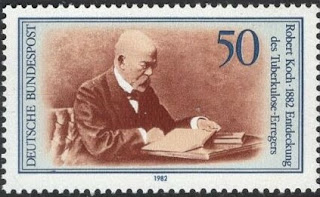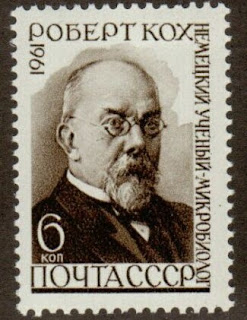Here are some events that happened on December 11th. It could be an event or a person that died or was born on that day
1816 – Indiana becomes the 19th U.S. state.
Indiana is a U.S. state in the Midwestern and Great Lakes regions of North America. Indiana is the 38th-largest by area and the 17th-most populous of the 50 United States. Its capital and largest city is Indianapolis. Indiana was admitted to the United States as the 19th U.S. state on December 11, 1816. Indiana borders Lake Michigan to the northwest, Michigan to the north, Ohio to the east, Kentucky to the south and southeast, and Illinois to the west.
Before becoming a territory, various indigenous peoples and Native Americans inhabited Indiana for thousands of years. Since its founding as a territory, settlement patterns in Indiana have reflected regional cultural segmentation present in the Eastern United States; the state's northernmost tier was settled primarily by people from New England and New York, Central Indiana by migrants from the Mid-Atlantic states and from adjacent Ohio, and Southern Indiana by settlers from the Southern states, particularly Kentucky and Tennessee.
Corydon, a town in the far southern part of Indiana, was named the second capital of the Indiana Territory in May 1813 in order to decrease the threat of Native American raids following the Battle of Tippecanoe. Two years later, a petition for statehood was approved by the territorial general assembly and sent to Congress. An Enabling Act was passed to provide an election of delegates to write a constitution for Indiana. On June 10, 1816, delegates assembled at Corydon to write the constitution, which was completed in 19 days. President James Madison approved Indiana's admission into the union as the nineteenth state on December 11, 1816. In 1825, the state capital was moved from Corydon to Indianapolis
Scott stamp 996 honors the Indiana Territory and depicts William Henry Harrison. Below is that stamp on a First Day Cover
Scott stamp 308 depicts a commemorative seal by artist Paul Wehr, this seal was used in that year’s festivities. Below is the stamp in a block of 4 as well as on a First Day Cover
1843 Born: Robert Koch, German microbiologist and physician, Nobel Prize laureate (d. 1910)
Heinrich Hermann Robert Koch (11 December 1843 – 27 May 1910) was a German physician and microbiologist. As one of the main founders of modern bacteriology, he identified the specific causative agents of tuberculosis, cholera, and anthrax and gave experimental support for the concept of infectious disease, which included experiments on humans and other animals. Koch created and improved laboratory technologies and techniques in the field of microbiology, and made key discoveries in public health. His research led to the creation of Koch's postulates, a series of four generalized principles linking specific microorganisms to specific diseases that remain today the "gold standard" in medical microbiology.
During his time as the government advisor with the Imperial Department of Health in Berlin in the 1880s, Robert Koch became interested in tuberculosis research. At the time, it was widely believed that tuberculosis was an inherited disease. However, Koch was convinced that the disease was caused by a bacterium and was infectious, and tested his four postulates using guinea pigs. Through these experiments, he found that his experiments with tuberculosis satisfied all four of his postulates. In 1882, he published his findings on tuberculosis, in which he reported the causative agent of the disease to be the slow-growing Mycobacterium tuberculosis.
For his research on tuberculosis, Koch received the Nobel Prize in Physiology or Medicine in 1905. The Robert Koch Institute is named in his honor.
1882 Born: Max Born, German physicist and mathematician, Nobel Prize laureate (d. 1970)
Max Born (11 December 1882 – 5 January 1970) was a German-Jewish physicist and mathematician who was instrumental in the development of quantum mechanics. He also made contributions to solid-state physics and optics and supervised the work of a number of notable physicists in the 1920s and 1930s. Born won the 1954 Nobel Prize in Physics for his "fundamental research in quantum mechanics, especially in the statistical interpretation of the wave function".
Born entered the University of Göttingen in 1904, where he found the three renowned mathematicians Felix Klein, David Hilbert, and Hermann Minkowski. He wrote his Ph.D. thesis on the subject of "Stability of Elastica in a Plane and Space", winning the University's Philosophy Faculty Prize. In 1905, he began researching special relativity with Minkowski, and subsequently wrote his habilitation thesis on the Thomson model of the atom. A chance meeting with Fritz Haber in Berlin in 1918 led to discussion of the manner in which an ionic compound is formed when a metal reacts with a halogen, which is today known as the Born–Haber cycle.
In the First World War, after originally being placed as a radio operator, he was moved to research duties regarding sound ranging due to his specialist knowledge. In 1921, Born returned to Göttingen, arranging another chair for his long-time friend and colleague James Franck. Under Born, Göttingen became one of the world's foremost centres for physics. In 1925, Born and Werner Heisenberg formulated the matrix mechanics representation of quantum mechanics. The following year, he formulated the now-standard interpretation of the probability density function for ψ*ψ in the Schrödinger equation, for which he was awarded the Nobel Prize in 1954. His influence extended far beyond his own research. Max Delbrück, Siegfried Flügge, Friedrich Hund, Pascual Jordan, Maria Goeppert-Mayer, Lothar Wolfgang Nordheim, Robert Oppenheimer, and Victor Weisskopf all received their Ph.D. degrees under Born at Göttingen, and his assistants included Enrico Fermi, Werner Heisenberg, Gerhard Herzberg, Friedrich Hund, Pascual Jordan, Wolfgang Pauli, Léon Rosenfeld, Edward Teller, and Eugene Wigner.
In January 1933, the Nazi Party came to power in Germany, and Born, who was Jewish, was suspended from his professorship at the University of Göttingen. He emigrated to the United Kingdom, where he took a job at St John's College, Cambridge, and wrote a popular science book, The Restless Universe, as well as Atomic Physics, which soon became a standard textbook. In October 1936, he became the Tait Professor of Natural Philosophy at the University of Edinburgh, where, working with German-born assistants E. Walter Kellermann and Klaus Fuchs, he continued his research into physics. Born became a naturalised British subject on 31 August 1939, one day before World War II broke out in Europe. He remained at Edinburgh until 1952. He retired to Bad Pyrmont, in West Germany, and died in hospital in Göttingen on 5 January 1970.
German stamp depicting Max Born as well as James Franck










No comments:
Post a Comment